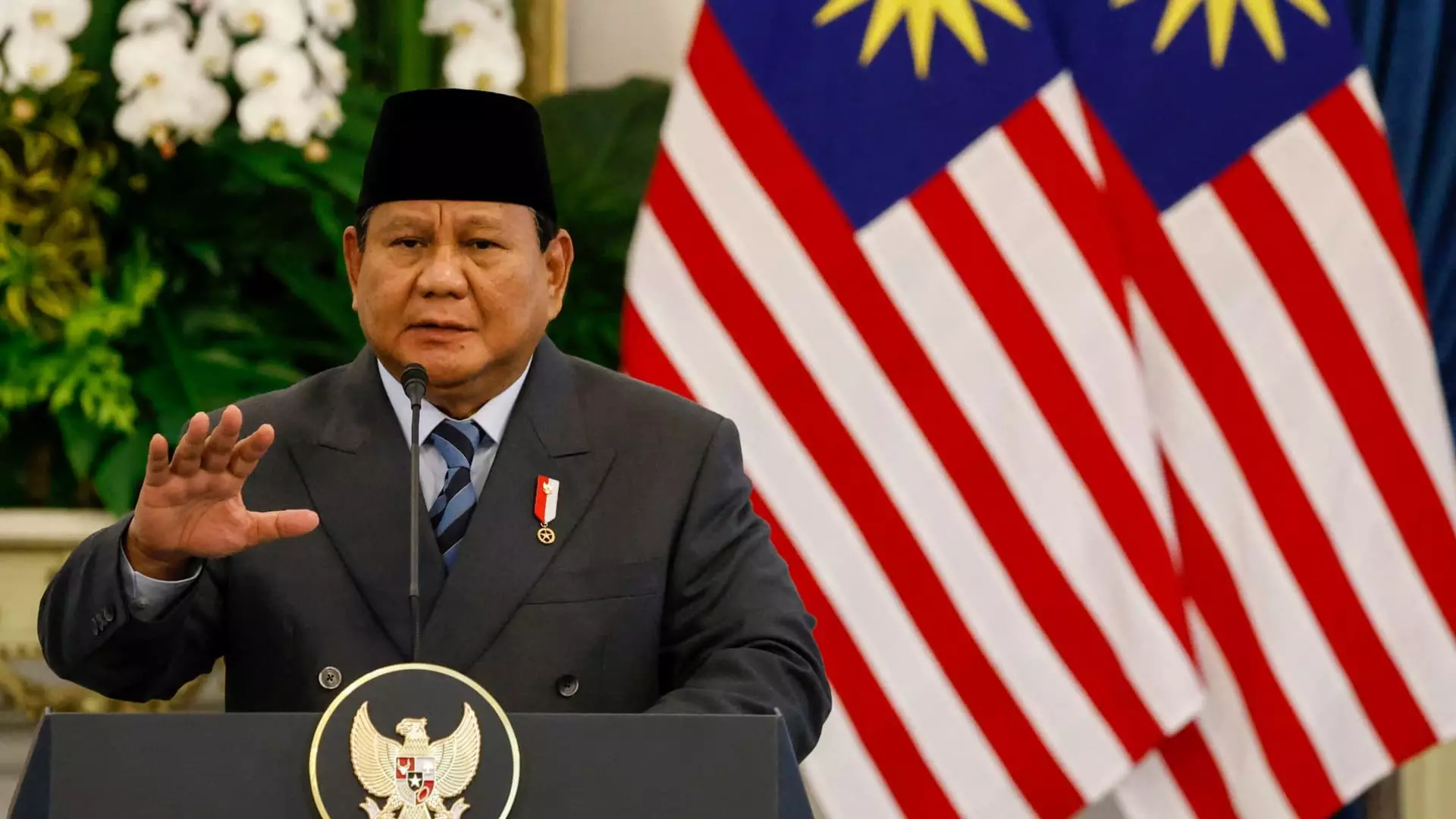In an era where the illusion of mutual benefit dominates political rhetoric, the recent U.S.-Indonesia trade framework exposes the fragility of our economic diplomacy. On the surface, it appears like a balanced breakthrough—Indonesia ceding tariffs and opening markets. Yet, beneath this veneer lies a complex web of compromise, strategic concessions, and unresolved inequalities. The narrative suggests a win for American industry and consumers, but scrutinizing the details reveals a troubling imbalance that benefits corporate interests more than the American public or Indonesia’s long-term development.
This agreement, with its modest 19% tariff rate, masks deeper issues about how global trade rules often favor the powerful. While the White House celebrates the deal as a victory—”America can defend its domestic production” and “expand market access”—these claims gloss over the broader context: the ongoing struggle of American labor, environmental standards, and small businesses to thrive amid a system heavily skewed toward multinational corporations. The superficial optimism obscures the reality that most American workers see scant benefit from such crafted packages, which often prioritize short-term political gains over sustainable economic resilience.
Trade Deals as Political Symbols, Not Economic Solutions
The phrasing around the agreement—”Agreement on Reciprocal Trade”— underscores a recurring political refrain that trade can be a tool for fairness. But the truth is, these deals are often symbolic gestures designed to showcase progress without tackling systemic issues like wage suppression, environmental degradation, or the hollowing out of local industries. The inclusion of sizable arms and energy deals—$3.2 billion worth of aircraft and $15 billion in energy purchases—are less about boosting the domestic economy and more about geopolitical influence and corporate profits masking behind diplomatic gloss.
Furthermore, the myth of reciprocity is just that: a myth. The fact that Indonesia’s initial tariffs reached as high as 32% under Trump shows a history of punitive measures aimed to pressure a developing nation into submission. Now, with a cut to 19%, the deal appears generous but still far from equitable. For the United States, it’s a calculated move to preserve access while maintaining a posture of strength—a diplomacy that relies more on leverage than mutual benefit.
Unrealized Promises and the Danger of Strategic Ambiguity
A significant concern is the ambiguity surrounding future negotiations. While the White House states that the deal “will be finalized” and “prepared for signature,” the lack of concrete commitments and clarity raises alarm bells. Such provisional promises are hallmark tactics of political expediency—they serve to appease domestic constituencies and bolster diplomatic claims without risking commitments that could backfire when broader economic realities are scrutinized.
Moreover, the deal’s focus on “non-tariff barriers” and market access conveniently sidesteps the more contentious issues such as labor rights, environmental protections, and digital privacy standards. These are often sacrificed at the altar of economic expediency in pursuit of short-term gains and geopolitical positioning. Economic diplomacy should not merely be about access; it should also be about fostering fair and sustainable growth—areas where this agreement remains conspicuously silent.
The Illusion of Balance and the Power Dynamics at Play
This trade framework exemplifies how large-scale geopolitics and corporate diplomacy distort the notion of balanced trade. It is less an honest negotiation between equals and more a display of power dynamics masquerading as mutual progress. The U.S. asserts its interests while Indonesia, a developing country eager to attract investment, feels compelled to accept unfavorable terms for the promise of economic opportunities.
In the grander scheme, this deal embodies the emphasis on “free trade” as a tool for American strategic interests rather than an altruistic effort to elevate both nations. It reflects an inherent flaw in our economic approach—prioritizing short-term gains over long-term sustainability and social equity. True fair trade would demand more than superficial rate reductions; it would require meaningful investments in local industries, environmental safeguards, and equitable labor standards.
Ultimately, this agreement—like many before it—serves as a reminder that the promise of balanced, reciprocal trade remains elusive. It is instead a strategic front, designed more to serve corporate and geopolitical interests than to advance genuine economic fairness or social justice. As negotiations continue, it is crucial that we remain critical, recognizing the disparity between rhetoric and reality, and demand a blueprint for trade that prioritizes the well-being of everyday people—not just powerful interests.


Leave a Reply